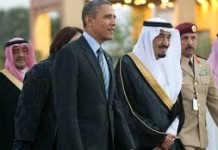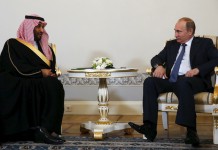Context
 Introduction
Introduction
In a series of articles, PoliTact is examining the status of Taliban insurgency in each one of the Federally Administered Tribal Areas (FATA) of Pakistan. Any realistic assessment of this region has to rely on independent and first hand access to the facts on the ground, to draw any meaningful conclusions or projections. In our previous study, we have examined the dynamics of Orakzai Agency and this article looks at Kurram Agency.
Kurram Agency is one of the most strategic located Federally Administered Tribal Areas (FATA) of Pakistan. As with other parts of FATA, it has also been severely affected by the Pakistani Taliban and Al Qaeda insurgency during the last decade. Since the rise of Pakistani Taliban groups in the country’s Pakhtoon tribal belt in 2004, and as a result of gradual relocation of Al Qaeda leadership and rank and file from Afghanistan, Kurram Agency has seen numerous clashes.
These clashes have been between the Shia majority population of Kurram tribal district and the extremely anti-Shia, Taliban and Al Qaeda fighters backed by local Sunnis. The biggest tribe in the Kurram Agency, Turi, is predominantly Shia while there is also a sizable population of Sunnis living in the area. The Sunni tribes include Zazi, Chamkani and some clans of Bangash; most of the clans of Bangash tribe of Upper Kurram are Shia. According to one estimate the Shias of Kurram Agency represents 20% of the total Shia population of Pakistan.
Analysis
Background
The ongoing wave of violence in the tribal agency began in April 2007 and after a brief lull, resurged in November of that year. According to South Asia Terrorism Portal (SATP), in 2010 a total of 219 peoples have died in FATA due to suicide attacks. A total of 313 have died as a result of bomb blasts, of which 26 were related to Kurram Agency. A total of 28 people have fallen victim to sectarian violence in Kurram this year. The residents of the area have suffered a lot due to road closures. Violence in particular has made the road which connects the agency to Peshawar, through Hangu, Kohat and Darra Adam Khel, totally unusable.
A large number of Kurram dwellers have relocated to other areas to avoid harm while those still living there are deeply stressed due to the security situation. The violence in Kurram Agency has also caused material losses estimated to be in billions of rupees. This is the longest period of ongoing bloodshed the tribal agency has seen, lasting for more than a year; it was usual for spats of violence to subside within days.
In light of discussions with several inhabitants from Kurram, PoliTact has learned the following. According to public perception, majority of the clashes in Kurram Agency are not actually sectarian but given such a spin by Pakistani establishment. This is in stark contrast to opinions held in other parts of Pakistan that hold India, Afghanistan and the NATO coalition responsible for destabilizing FATA.
The violence in Kurram is triggered and sustained by the Taliban from the neighboring North Waziristan Agency. Importantly, the current Tehreek-e-Taliban Pakistan (TTP) head, Hakimullah Mehsud, was previously the commander of Kurram along with Orakzai and Khyber tribal districts of FATA. Hakimullah succeeded TTP founder Baitullah Mehsud after he was killed in a 2009 US drone attack.
The reason for Taliban to move to Kurram Agency is to dislocate the Shia population from the strategically located border with Afghanistan, which the Taliban wanted to use. However, historically people of Kurram Agency have always resisted the attempts to use their territory. In order to marginalize Shias and stop them from preventing militants crossing into Afghanistan or providing NATO-US or Afghan government information about militants activities, Taliban-Al Qaeda nexus devised a strategy to kill and terrorize Shias in the region.
The ongoing violence in Kurram Agency and the subsequent closure of the road has left the Shias living in Upper Kurram, towards the border, facing an extreme situation and with feelings of abandonment and resentment. They are cut off from the rest of Pakistan and there is no real attempt by the authorities to reopen the vital roadway. According to former chief secretary of NWFP (now Khyber Pakhtunkhwa), Khalid Aziz, Shias of Kurram Agency on one occasion petitioned the Afghan government and NATO forces to enter their territory, as there was no writ of Pakistan in these areas while they they have been left at the mercy of Taliban. According to data collected by the Long War Journal, a total of 3 drone strikes have occurred in Kurram Agency from 2004 to 2010.

Strategic Distinction of Kurram Agency
The religious profile of Kurram Agency sets it apart from other tribal districts of FATA. Along with Orakzai, the districts are the only two places where there is a large Shia population. However, it is only in Kurram where Shias are in majority. The Pakistani Taliban and their Al Qaeda guest fighters have tried to stir up sectarian sentiments is Kurram resulting in violence against Shias. In this respect the local Sunni militants have been greatly supported by Pakistani Taliban militants from other areas of FATA, Khyber-Pakhtunkhwa province and the so-called Punjabi Taliban.
An important reason why the Pakistani Taliban and Al Qaeda have concentrated so specially on Kurram Agency has been its immense geo-strategic importance from the insurgent’s standpoint. The tribal district is located on the Pakistan-Afghanistan border and is just 100 kilometers from the Afghan capital of Kabul, and is also know by the name of ‘Parrots Beak’. On the southwest of Kurram is located the North Waziristan tribal agency, which is more or less ruled by Pakistani Taliban groups led by Hafiz Gul Bahadur. The base of the Afghan militant Haqqani Network is also located in North Waziristan. Presently the largest hub of TTP is in Orakzai Agency and is located to the Southeast of Kurram. Kurram Agency also provides easy strategic access to an important region of Afghanistan comprising Nangarhar and Kabul provinces. The Afghan and NATO forces have faced the stiffest resistance in the adjacent areas of Gardez and Khost. The insurgents can easily attack Coalition and Afghan forces in Afghanistan and also readily withdraw, making full use of the territory of the Kurram Agency and the strategic advantages it affords them.
However, unlike other tribal districts the local Shia population has greatly resisted the extremists, including using armed defiance. As a result the Pakistani Taliban and Al Qaeda have not been able to maintain a hold over Kurram. In order to pressurize the Shia population to give up resistance, Taliban insurgents have blocked the main road that connects Upper Kurram with Peshawar, and thus exert economic strain on the local population.
Peshawar, the provincial capital, has been the health, education and business hub for most of FATA. Most of the province including FATA have traditionally been dependent on the city for the supplies of essential items and staples. The Taliban and Al Qaeda have successfully managed to keep the road between Kurram and Peshawar shut for almost three years. Although Pakistani authorities opened up the road after several military offensives in the recent past, Shia travelers have constantly come under attack from Taliban operatives.
Parties Involved in the Violence
The local Taliban are fighting the Shia under the name Mahdi Militia while the opposing Shia force goes by the name of Hizbullah, though without connection to the Iranian-backed group of the same name in Lebanon. However, to view the situation in the region in isolation from the larger Shia-Sunni tensions of the Middle East would be naive.
The second major element responsible for violence in Kurram Agency has been confrontation between Mangal and Tori tribes living near the Pak-Afghan border. Both the tribes often indulge in skirmishes with each other on petty issues like water, cattle-heads, wood-cutting and others. These kinds of disputes are often given a sectarian color but these are enmities and disputes which often result in violence . The non-sectarian nature of the Tori-Mangal disputes prompted the four main tribes of central Kurram — Para Chamkani, Ali Sherzai, Masoozai and Zeahmusht — to refuse to take part in the clashes, stating that they would not be a party to domestic-type issues between the Tori and Mangal tribes. However, there has been local suspicion that Pakistani intelligence agencies have been fanning the flames of sectarianism between the two tribes.
Peace Initiative
A peace initiative by the civilian political administration was started by the then Political Agent of Kurram Agency, Zahir-ul-Islam, which culminated in an agreement in January 2008 between warring factions in Kurram Agency. Under this agreement:
- Tal-Parachanar highway leading towards Peshawar and other roads would be opened.
- Both parties would come out of their trenches and the bunkers would be handed over to security forces.
- If any party violated the agreement, a fine of Rupees 40 million would be received from the faction.
The peace deal was finalized through a 50-member jirga of council of elders by the political administration. However the Taliban and two other militias have kept on carrying out activities in violation of that accord. Therefore, when there have been naked violations of the peace terms the government convened the same jirga in Peshawar to try and affix responsibility. The jirga included 25 elders each from the Shia and Sunni sects of Kurram Agency. However, the two sides could not reach a final decision after several rounds of government-sponsored deliberations.
There has been no improvement in the security situation of Kurram with the conditions going from bad to worse. According to various experts, Pakistani authorities have almost lost control and credibility in the area, making it very challenging to implement the existing peace agreement or attempt a new treaty.
Media reports indicate today that a fresh attempt towards bringing peace to Kurrum is being made. PoliTact will continue to monitor the dynamics of this key tribal agency of FATA, Pakistan.
Tell Us What You Think
Feedback@politact.com



